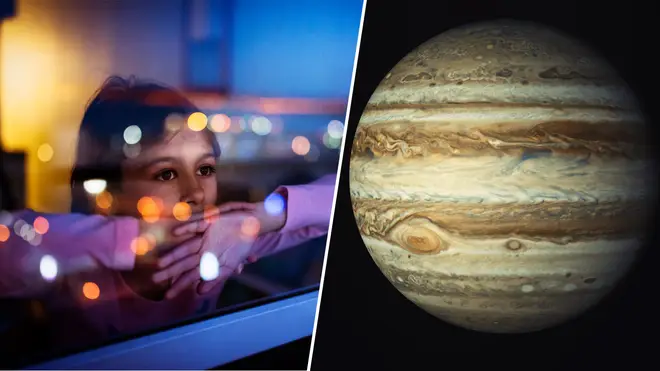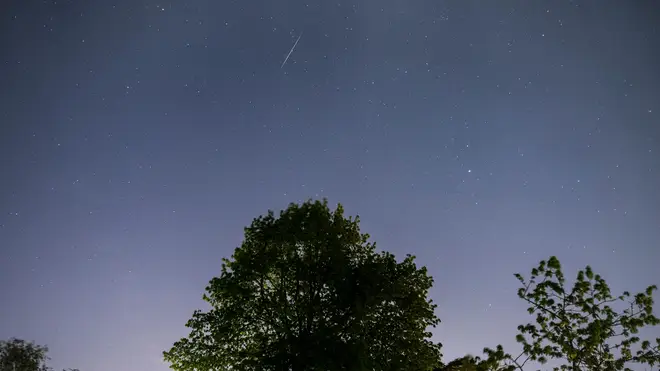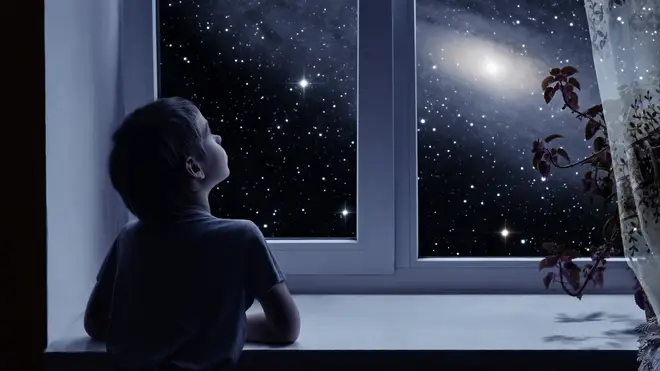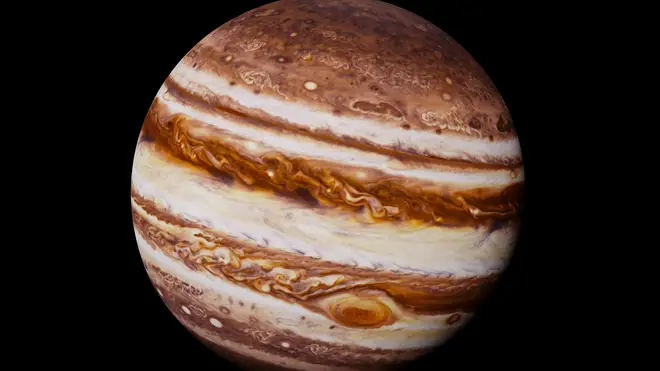How to see Jupiter’s closest encounter with Earth in 59 years tonight
26 September 2022, 11:57 | Updated: 26 September 2022, 12:06

Jupiter closest to Earth time: When can you see Jupiter from Earth tonight? Here's when it will be closest to Earth...
If you want to keep the kids entertained tonight, Jupiter will be approaching the closest it’s ever been to the Earth in decades.
While stargazers will know that Venus is usually the brightest planet in the sky, over the next few weeks it will be overshadowed by Jupiter.
- Emily in Paris season 3 release date finally revealed for December
- Love Island’s Maura Higgins shares emotional moment Molly-Mae Hague cries during ultrasound

You might have already spotted the biggest planet in the solar system over the past few days.
But what time is Jupiter closest to the Earth and how can I see it? Here’s what we know…
How can I see Jupiter in the sky tonight?
Jupiter will appear at its largest and brightest and will remain above the horizon for much of the night.
According to Sunset Times, the sun will set at approximately 6.50pm in the UK tonight.

Around this time, the planet will rise and look like a white sparkly dot to the naked eye, but according to NASA you will be able to see the planet’s bands using a pair of binoculars.
Jupiter has reached opposition, making the planet appear larger and brighter than any other time year.
An ‘opposition’ is considered the best time to see a planet as it will be directly opposite the sun in the sky.
Since planets don’t follow perfectly circular orbits, the distance between two planets can vary in each opposition.
And while an opposition with Jupiter takes place around every 13 months, this is the closest we will be in decades.

“This happens because Earth and Jupiter do not orbit the Sun in perfect circles – meaning the planets will pass each other at different distances throughout the year,” explains NASA in a statement.
“Jupiter’s closest approach to Earth rarely coincides with opposition, which means this year’s views will be extraordinary.”
Adam Kobelski, a research astrophysicist at NASA’s Marshall Space Flight Center added: “Outside of the Moon, it should be one of the (if not the) brightest objects in the night sky. With good binoculars, the banding (at least the central band) and three or four of the Galilean satellites (moons) should be visible.”
According to the Met Office, the weather will be wet and windy across most of the country later this eve so you might want to wrap up warm if you are stargazing tonight.

































